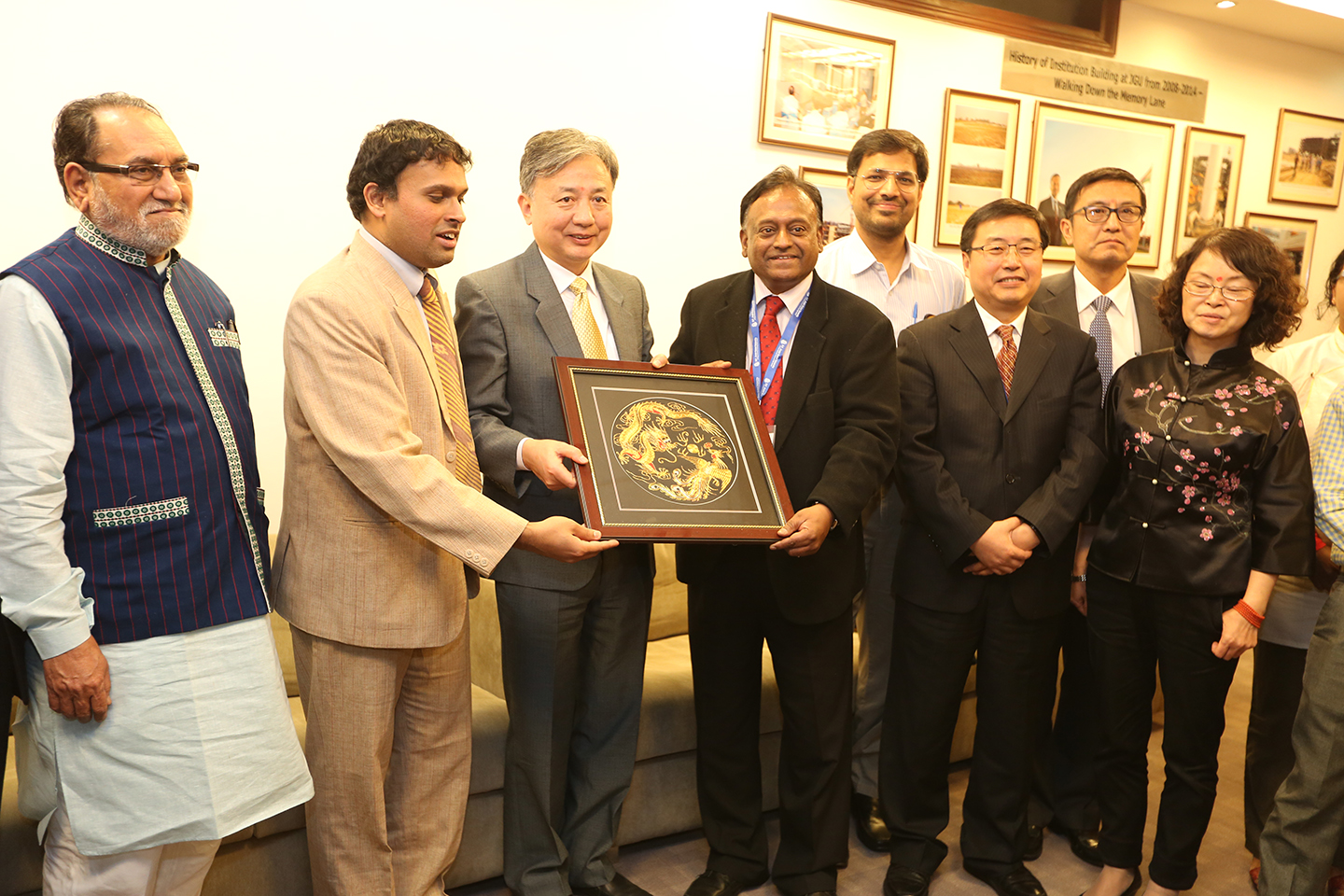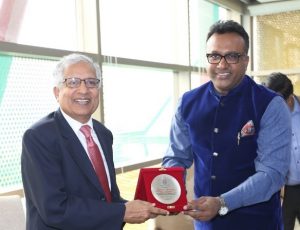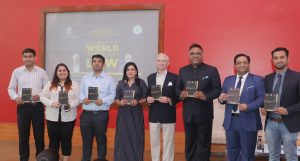New Delhi December 1, 2015
On November 30, 2015, the Center for India-China Studies at Jindal Global Law School (JGLS), organized a special roundtable consultation for representatives of National People’s Congress of China (NPC) titled, “Improving Public Participation in Legislative Process in India and China.”
The meeting was organized to discuss unique ideas to enhance public participation and transparency in legislation and improve governance through the promotion of innovative participatory approaches in law making in both countries.
The discussion witnessed participation from over 25 leading academics, experts, and policy-makers.
Delivering the welcome address at the discussion, Professor (Dr.) C. Raj Kumar, Founding Vice Chancellor, O.P. Jindal Global University (JGU), said, “India and China have a very long and historical relationship and people and institutions of both countries share very deep and pervasive ties. Both our countries share remarkable similarities and there are a number of causes we can work on. I am hopeful the deliberations today will help discuss those issues in a candid manner”
Mr. Lang Sheng, Member of the Standing Committee of NPC; Vice Chairman of Legal Affairs Committee of NPC, was the chief guest at the discussion, speaking on the bond that India and China share, he said, “Our countries share a great history and heritage and we are honored to participate in this discussion, we are very keen to share our views and enthusiastic to learn from our Indian counterparts.
Highlighting the importance of transparency in public policy formulation in China, he stated, “99% of draft laws in China are open for public to debate, and only 1% of policies pertaining to defense and security are kept a secret from the public.”
Delivering a special address at the conference, Mr. Suresh Prabhu, Union Minister for Railway, Government of India, spoke on the avenues and challenges for participatory governance in the country, he said, “We may not have embraced structured consultative techniques like referendums or surveys in the country like the Swiss, but the Indian policy making procedures are not bereft of public intervention. Every individual in the country can express his opinion on the policy formulation process and can register it through the social or the mainstream media.”
Professor R. Sudarshan, Dean, Jindal School of Government and Public Policy, noted that China is unique in having legislation on how to legislate, i.e., requiring consultations with the public and experts, and mandating feedback to the public on the outcomes of those consultations. Even though the legislative systems in India and China are radically different, lessons can be learned about how both systems can be responsive to people, especially at the grassroots level.
Numerous other public policy and academic experts debated on key fundamental questions surrounding public policy and governance, discussions at the forum revolved around formal mechanisms for legislatures or policy-makers to seek public opinions and also the process that should be employed for public deliberations and consultation
Speaking on public participation policy and practices in the legislative process in India, Mr. Sandeep Dikshit, Former Member of Parliament, explained, “The Indian populace has minimal involvement with the legislative process in the country, public consensus accounts only for 2-3% of policy formulation in the country, whereas close to 80% of decisions are driven by the bureaucracy.”
While Mr. Venkatesh Nayak, Program Coordinator, Commonwealth Human Rights Initiative, stated, “The policy making process in the country is extremely secretive and does not involve public consensus in drafting of laws, he further stated, “the Right to Information Act was the only law that came through a consultative process.”
Highlighting the importance of bilateral dialogue between the two countries, Professor (Dr.) Sreeram Chaulia, Dean, Jindal School of International Affairs (JSIA), said, “Bilateral dialogues among legislators and intellectuals can throw up surprising discoveries about governance and political problems in both the Asian giants. China and India are dissimilar but also similar in some ways and we must promote more such comparative workshops for mutual learning.”
Speaking on ways to improve public participation in India and China, Professor Rajeev Malhotra, Lead Author & Chief Editor, India Public Policy Report, noted, “In India, the consultative and participatory process of governance is very well defined at the central level but a lot still needs to be done to establish the same controls at the provincial and sub-provincial levels.”
Delivering the vote of thanks, Mr. Li Bijian, Minister Counselor, said, “We attach great importance to such interactions and eagerly look forward to many other constructive conversations.”
The delegation of the NPC is visiting India as part of an international study tour on Public Participation in Lawmaking and is supported by the UNDP project, “Promoting innovative participatory approaches in law-making in China”.
About Center for India-China Studies
Center for India-China Studies is a multi-disciplinary intellectual platform and resource hub for academia, practitioners and students who are interested in India and China. It is also committed to playing an active intellectual role on issues related to India-China collaborations and south – south cooperation at regional and international level.
About Jindal Global Law School
Located in the vibrant National Capital Region, Jindal Global Law School (JGLS), part of O.P. Jindal Global University (JGU), imparts a rigorous and multi-disciplinary legal education with a view to producing world-class legal professionals, scholars, and public servants. JGLS empowers its students with knowledge, skills, and vision to meet the challenges and opportunities of a rapidly changing world.



